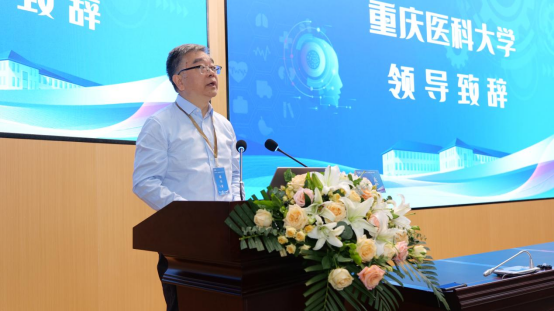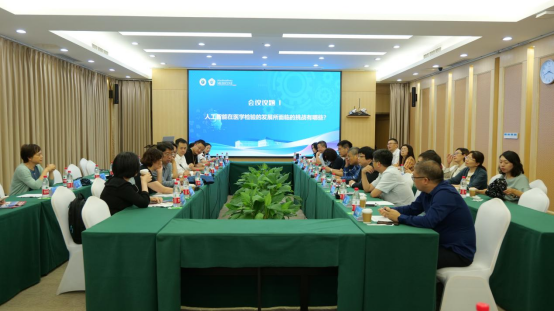On 23th September, 2023, the “Academic Seminar on the Integrated Development of Medical Laboratory and Artificial Intelligence” jointly organized by the college of Laboratory Medicine of Chongqing Medical University and the Interdisciplinary Medicine journal, was held at the International Conference Hall of Chongqing Medical University.


Prof. Tian Jie, the Vice President of CQMU, and Prof. Zheng Lei, the Laboratory Director of Nanfang Hospital, Southern Medical University, Director of Biosensor Technology Engineering Research Centre for Rapid Diagnosis of Major Diseases in Guangdong Province and Chief Editor of Interdisciplinary Medicine, delivered speeches at the conference. Experts from the fields of Medical Laboratory, Information, and Artificial Intelligence have delivered reports on the integrated development of Medical Laboratory and Artificial Intelligence, covering multiple integrated directions such as smart medical laboratory, AI medical assisted decision-making, medical engineering integration, big data model application, and clinical laboratory data research.

After the conference, a roundtable discussion on the integrated development of medical laboratory and artificial intelligence was held. The attending experts conducted in-depth exchanges and discussions on three topics: “Challenges faced by the development of artificial intelligence in medical laboratory”, “How to adjust subject settings and talent cultivation accordingly”, and “How artificial intelligence technology empowers medicine laboratory and serves clinical practice”. Experts believe that the cross-integration of artificial intelligence and medical laboratory currently faces problems such as data management, model efficiency, talent matching, regulatory certification, and clinical application. We need to face challenges and seize opportunities, and vigorously cultivate an inter-disciplinary talent team that understands both clinical laboratory and artificial intelligence.

This forum has pushed the College of Laboratory Medicine to move forward to the strategy of developing “Laboratory Medicine +” and embark on the “New Era, New Journey, New Laboratory Medicine”.